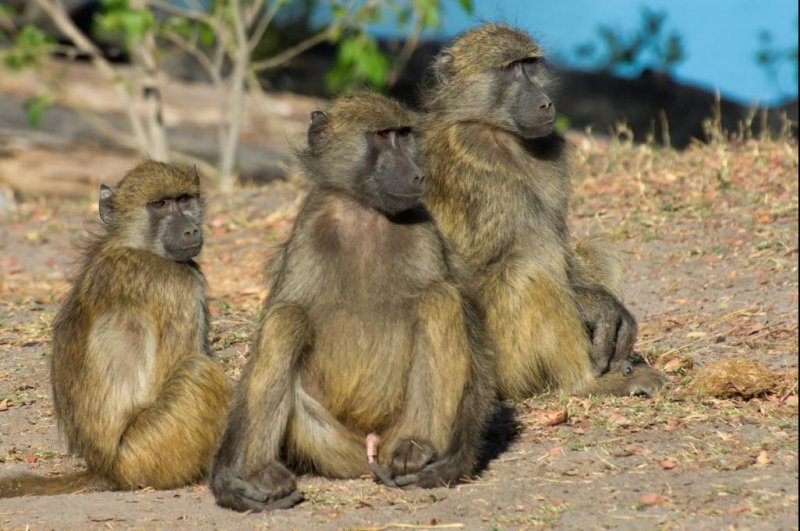New research suggests the large brains of Chacma baboons, Papio ursinus, help them cope with the conflicts of large-group living. Photo by University of Manchester
March 27 (UPI) -- New research suggests bigger brains help primates in larger social groups manage their aggression and cope with conflict.
Scientists have previously pointed to increasing competition for resource and life among growing social groups as reasons for differing brain sizes among different primates. New research suggests conflict resolution plays a role, too.
Researchers at the University of Manchester compared the group size, brain size and behavioral traits of several primate species. Data was sourced from studies involving 45 different wild populations across 23 primate species.
The analysis showed a correlation between brain size and group size. The research -- detailed in the journal Behavioral Ecology -- also revealed a unique relationship between group size and agonism, or conflict.
Chacma baboons, capuchins and black and white ruffed lemurs boasted the highest levels of agonism, while brown lemurs and black howler monkeys were the least agonistic.
"Our research indicates that the increase in brain size is likely to be a consequence of high levels of competition in large groups. It seems that large brained primates have had to develop strategies to cope with high rates of conflict," study leader Veronica Cowl, a doctoral student at Manchester's School of Earth and Environmental Sciences, explained in a news release. "This is of particular importance as primates are noted for their social cognition -- for example, they are able to understand social relationships between individuals, track social relationships and can develop social strategies."
Cowl and her researcher partners found group-level conflict grows with group size, but dyadic agonism decreases. Dyadic agonism is a measure of an individual's aggression toward other individuals in the group.
The distinction suggests growing primate brains have helped species to more effectively manage the conflicts and aggression that rise as group sizes increase.
"It seems large-brained primates have evolved to cope with the challenges of conflict and coordination inherent in living in large groups," concluded researcher Susanne Shultz.















